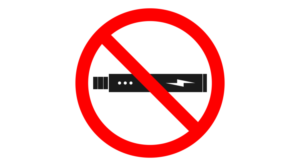In North Dakota, as in other states, police officers often administer breathalyzer tests and other field sobriety tests during DUI stops. Whether or not a breath test is administered at the scene of the stop, an officer will typically request that an individual submit to a breath test again, after the arrest takes place. Taking a breathalyzer test and having it show that your blood alcohol content (BAC) at the time of the traffic stop was higher than the legal limit can put a serious dent in your drunk driving defense case. However, refusing to submit to a breathalyzer test can also negatively impact your case. In North Dakota, the results of the preliminary breathalyzer administered at the scene of the stop is typically inadmissible in court, but simply refusing a breath test is a criminal offense in North Dakota which can result in an arrest. Refusing a breath test can also result in a suspension of your driver’s license for up to three years, even if you are never convicted of a DUI.
The Pros and Cons of Refusing a Breath Test
Most field sobriety tests, like the walking a straight-line test, are subjective at best. There are plenty of reasons that people fail these tests besides drunkenness, such as feeling intimidated and anxious because of a traffic stop or because of any of numerous medical conditions that affect a person’s balance. A breath test, however, measures your blood alcohol content. If you are arrested for a DUI, an officer may have you submit to a second breath test following your arrest. This second test, an intoxilyzer is generally admissible in court, if the correct procedure is followed when administering the test. The higher your BAC, the worse the penalty. For example, your first DUI conviction does not carry a minimum jail sentence unless your drunk driving caused an accident that resulted in an injury or unless your BAC was greater than 0.16. So, in an instance where your BAC is greater than .16, there may be some benefit to refusing the intoxilyzer test. However, refusing a breath test is not a risk-free proposition because it could still result in a revocation of your driver’s license, which is worse than a suspension, as well as a separate criminal charge and penalties for refusing.
Your Right to Refuse a Blood or Urine Test
Unfortunately, even if you refuse a breath test, an officer may obtain a search warrant in order to determine your BAC through another method, such as obtaining a blood or urine sample. Previously, individuals could also be charged with the crime of Refusal for declining to provide an officer with a blood or urine sample, for the purpose of determining a driver’s BAC. A 2016 Supreme Court decision, Birchfield v. North Dakota, ruled that requiring defendants to submit to blood tests to test for BAC violates the defendants’ constitutional rights. Specifically, the Fourth Amendment protects against unreasonable search and seizure. The police cannot search your house for stolen property or other evidence of a crime without a search warrant, and therefore, the Supreme Court ruled, they cannot search your blood for alcohol without a warrant. Now, the police must obtain a warrant before drawing your blood to test for BAC; if they do not, you have the right to refuse the blood draw. The Supreme Court ruled that blood tests are sufficiently intrusive to require a warrant. Following the decision issued in Birchfield, the North Dakota Supreme Court held that urine tests are similar to blood tests, and that a warrantless urine test is not a reasonable search incident to a valid arrest. State v. Helm, 2017 ND 207, ¶ 16. If an officer simply requests that you provide them with a urine sample or blood sample to determine your BAC, you have the right to refuse pursuant to these Court decisions. However, if an officer successfully obtains a search warrant for a blood test or urine test, you can no longer legally refuse to provide the requested sample.
Whether or not you decide to refuse a breath test, or other chemical test, it is always in your best interest to consult a criminal defense attorney if you are facing criminal charges and/or the suspension of your driver’s license. Most of the time, the attorney will tell you to take the breath test, but it is all very fact specific, therefore, requesting to speak to an attorney is your best option when faced with these tough decisions.

Born and raised in Western North Dakota, Tatum O'Brien attended North Dakota State University and graduated with distinction from the University of North Dakota School of Law. She has since built years of litigating experience in her home state and become recognized as a highly skilled attorney representing clients in criminal and personal injury cases in addition to helping those who have experienced issues of medical malpractice, serious personal injury, and wrongful death.









Comments for this article are closed.